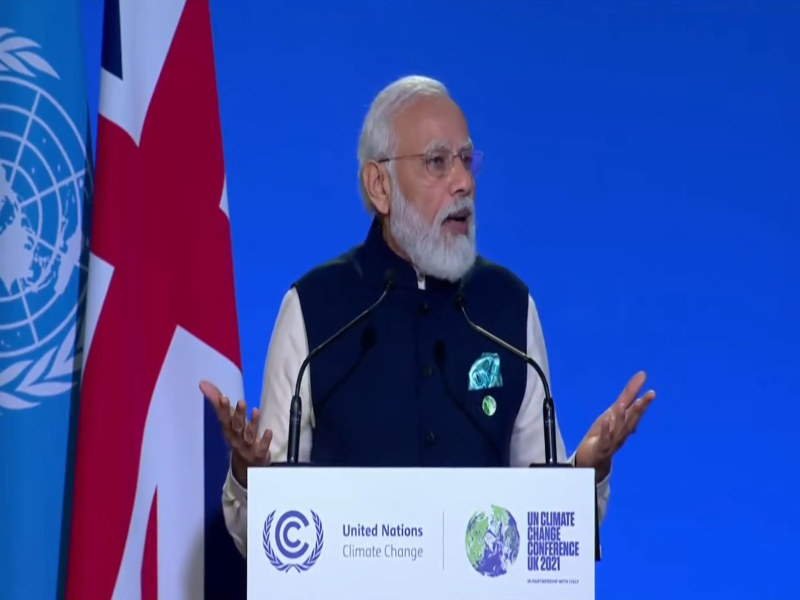 COP26
COP26 PM Modi outlines three proposals to help countries in adaptation to climate change
Glasgow/New Delhi/UNI: Prime Minister Narendra Modi on Monday said that in the global climate debate the issue of adaptation had not got the attention it deserves, which he termed an injustice to developing nations, and outlined three proposals, including global support to Least Developed Countries to help them with their local adaptation techniques.
In his address at the COP26 Leader Level event – ‘Action and Solidarity-The Critical Decade’, the Prime Minister also outlined his own government’s initiatives like Har Ghar Jal, or Tap Water for All, Swachh Bharat, Green India Initiative, and Ujjwala clean cooking gas mission, which he said are bringing the benefits of adaptation techniques to the citizens.
“In the global climate debate, the issue of adaptation has not received the attention it deserves as mitigation has got. This is an injustice to the developing countries who are affected majorly by climate change,” he said.
“For India and other developing countries climate is a big challenge; it is bringing changes to the cropping patterns. Unseasonal rains, floods and regular cyclones are damaging crops,” he stressed.
“From drinking water sources to affordable housing, we must make all this resilient against climate change,” the PM said.
He outlined three proposals:
Firstly, that adaptation be made a key part of development policies and plans, and gave the example of his own government’s policies.
“We have to make adaptation a key part of our development policies and plans. In India, Har Ghar Jal, Swachh Bharat, Green India Mission, Ujjwala Mission, are bringing the benefits of adaptation techniques to our citizens, and the quality of life has improved,” the Prime Minister said.
The second point was to give importance to the traditional knowledge base of communities who have been living with nature as part of the adaptation policies. He also said that this traditional knowledge should be included in school syllabi so that the knowledge is passed on to the newer generations.
“Secondly, many communities have the traditional knowledge of living with nature. In our adaptation policies, this traditional knowledge should be given importance. And to ensure this knowledge source reaches the newer generations it should be included in school syllabus,” he said.
The safeguarding of lifestyles based on local conditions should also be made a major pillar of adaptation, he stressed.
The third point he made was that adaptation techniques should get global support in the case of least developed countries.
He said the Coalition for Disaster Resilient Infrastructure (CDRI), proposed by India, is an initiative to help with local adaption techniques and urged the international community to join the initiative.
“Thirdly, even if the adaptation techniques are local, the Least Developed Countries should get global support in this. For global support to local adaptation India has launched the Coalition for Disaster Resilient Infrastructure (CDRI). I urge all countries to join this initiative”.
Support Our Journalism
We cannot do without you.. your contribution supports unbiased journalism
IBNS is not driven by any ism- not wokeism, not racism, not skewed secularism, not hyper right-wing or left liberal ideals, nor by any hardline religious beliefs or hyper nationalism. We want to serve you good old objective news, as they are. We do not judge or preach. We let people decide for themselves. We only try to present factual and well-sourced news.







